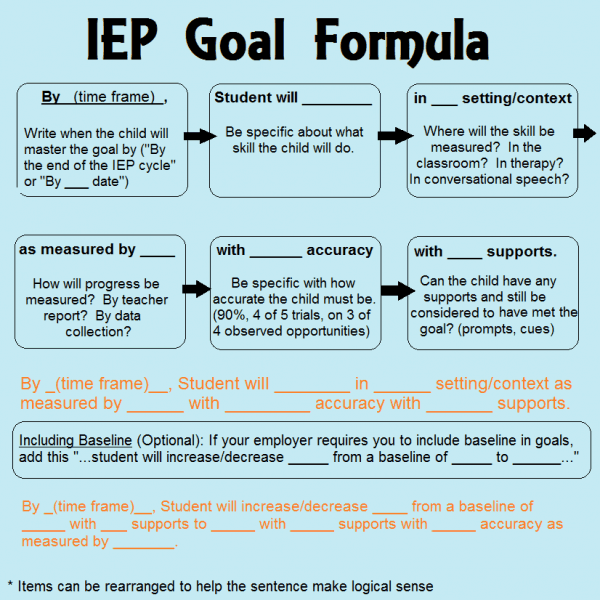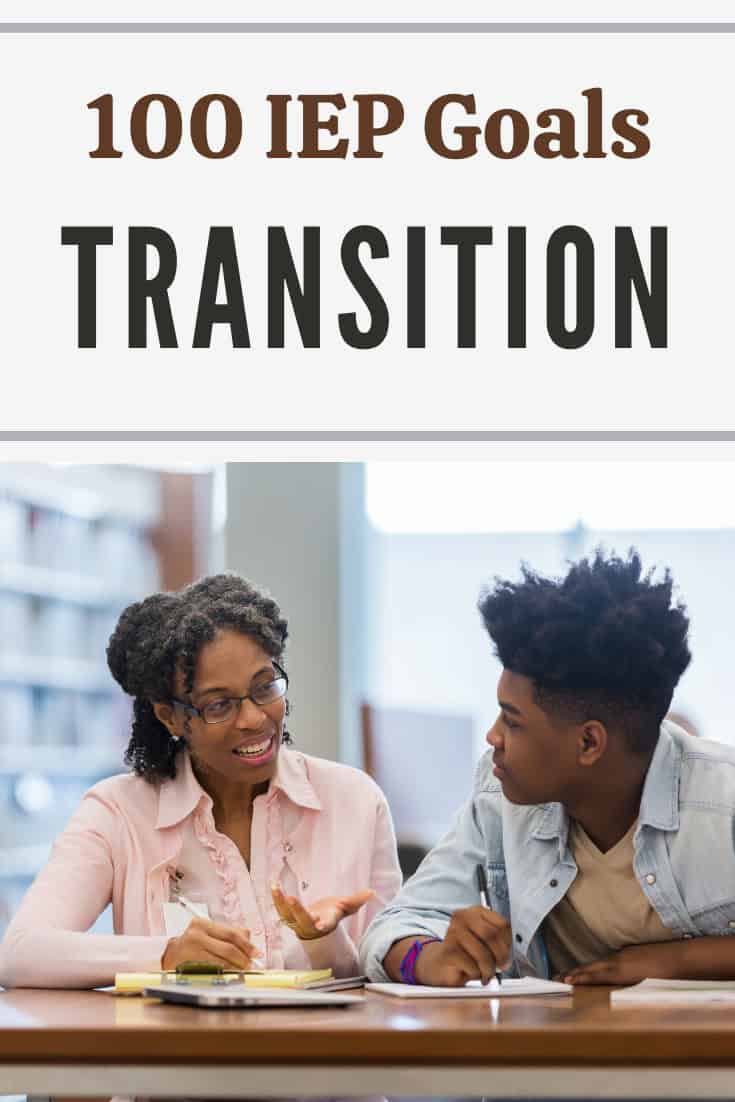1000 Transition IEP Goals that Work : IEP Transition Goals Bank
Transition planning within an IEP refers to the process of preparing students with disabilities for life after high school, specifically focusing on their post-secondary education, employment, and independent living goals.
There’s no need to reinvent the wheel. Millions of IEP students have graduated from their school and with the help of an Transition IEP Goals Bank, had goals that were meaningful to them for their adult life.

IEP transition planning typically begins when a student turns 16, although it can start earlier if deemed necessary. And it involves a LOT. I mean it parents, if you don’t take ownership of this, your child will be left behind.
IEP Goals for your Transition Plan
The transition plan is designed to address the unique needs of each student and may include goals related to vocational training, job placement, further education, independent living skills, and community involvement.
Read: How to Develop a Meaningful IEP Transition Plan
It involves collaboration among the student, parents or guardians, educators, and any relevant service providers to identify the student’s strengths, interests, and needs, and to develop a roadmap for achieving their post-secondary goals.
Transition IEP goals are critical for ensuring that students with disabilities have the necessary support and resources to successfully transition from school to adult life and to pursue their chosen path with confidence and independence.
Any skill can become an IEP goal, if you put it in the IEP goal formula. You can also use multiple items here, and use some as objectives toward a goal.

IEP Transition Goals
In the United States, the age for IEP transition planning typically begins when a student turns 16 years old, as mandated by the Individuals with Disabilities Education Act (IDEA).
However, transition planning can start earlier if deemed appropriate by the student’s IEP team, which includes educators, parents or guardians, and sometimes the student themselves. Or, if your state has lowered the age of transition.
This early start allows for comprehensive planning and preparation for life after high school, focusing on the student’s post-secondary education, employment, and independent living goals.

Transition IEP Goals
- 65 Vocational IEP Goals Including Work Habits and Jobs
- 100 Independent Functioning and Independent Living IEP Goals (Life Skills Goals)
- 36 Measurable Postsecondary Goals for an IEP
- IEP Transition Goals Bank
- 99 Community Safety and Transportation IEP Goals
- 75 Personal Hygiene and Health IEP Goals
- 68 Money IEP Goals including Functional Math, Budgeting and Banking
- 53 Measurable Self Advocacy IEP Goals and Objectives: Elementary to High School
- IEP Goal Bank
- 20 IEP Goals for Low Functioning Students
- Also read: How to Develop a Meaningful IEP Transition Plan and What is Age of Majority?
Transition Goals on an IEP
So, make note of this. Transition goals go on the IEP when the child is going to turn that age.
I’ll use my son as an example. He has a summer birthday. His annual IEP renewal time is January. Our state’s transition age is 14.
So, he was actually 13-and-a-half when he first had transition goals on his IEP.
The IEP team should be adding the IEP transition plan to the IEP before, not after. Had my son’s team waited until he was actually 14 to add transition IEP goals, he would have been 14-and-a-half and potentially lost 6 months of supports and services related to his IEP transition plan.

Transition Goals
It’s worth noting that many IEP goals for transition, including those found in this IEP transition goal bank, are not measurable.
This is a shift in thinking for many parents. For years we’re browbeaten to think about measurable IEP goals.
But, the transition IEP goals, if completed, likely will happen after the child leaves school. These goals may be related to being collegebound or career readiness and getting a job.
Your school team, while required to provide FAPE, is not required to provide your child a job. It’s not something they can control–whether or not your child gets a job or goes to the college they desire.
Their responsibility is to provide supports and services to get the child to that goal.
You likely won’t get decent supports and services if you don’t have solid IEP transition goals.
This is just part of the reason why IEP transition goals are so important.

Transition IEP Goals Bank
So, without further discussion, here are all the IEP goals I have on the site, as related to IEP transition.
Good luck, and don’t miss all the other valuable content on the site related to transition.
Independent Functioning and Life Skills
- Sample Student Toilet Protocols for an IEP
- 25 Functional Life Skills Activities for IEP Students (+ How to Teach Them)
- 37 Toileting IEP Goals (for all ages)
- 65 Vocational IEP Goals Including Work Habits and Jobs
- 100 Independent Functioning and Independent Living IEP Goals (Life Skills)
- 1000 IEP Goals for Transition: IEP Transition Goals Bank
- 36 Measurable Postsecondary Goals for an IEP
- 99 Community Safety and Transportation IEP Goals
- 75 Personal Hygiene IEP goals and Health IEP Goals (effective and measurable!)
- 68 Money IEP Goals including Functional Math, Budgeting and Banking
Transition IEP Goals
- 65 Vocational IEP Goals Including Work Habits and Jobs
- 100 Independent Functioning and Independent Living IEP Goals (Life Skills Goals)
- 36 Measurable Postsecondary Goals for an IEP
- IEP Transition Goals Bank
- 99 Community Safety and Transportation IEP Goals
- 75 Personal Hygiene and Health IEP Goals
- 68 Money IEP Goals including Functional Math, Budgeting and Banking
- 53 Measurable Self Advocacy IEP Goals and Objectives: Elementary to High School
- IEP Goal Bank
- 20 IEP Goals for Low Functioning Students
- Also read: How to Develop a Meaningful IEP Transition Plan and What is Age of Majority?



